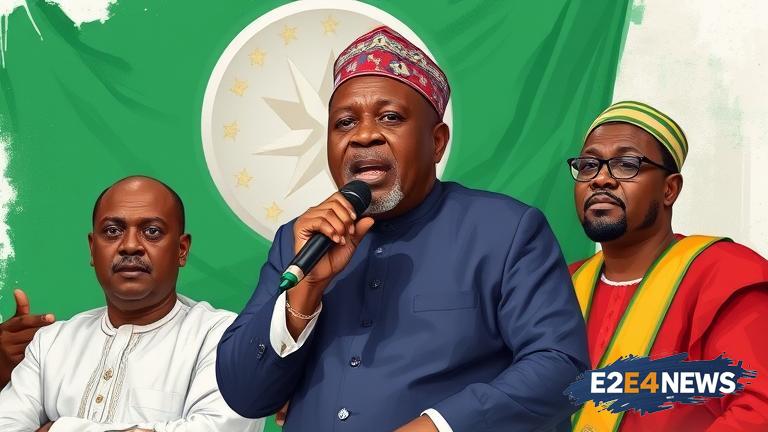The African Democratic Congress (ADC) in Kogi State has been embroiled in a deepening crisis, with a faction of the party recently reaffirming the expulsion of its state chairman, Kingsley Ogga. This decision has been met with mixed reactions from party members and stakeholders, with some expressing support for the move while others have condemned it as unjust and politically motivated. The faction that expelled Ogga has cited allegations of anti-party activities, misconduct, and a failure to adhere to the party’s constitution and guidelines. According to sources within the party, Ogga’s expulsion was the result of a thorough investigation and a subsequent vote by the party’s state executive committee. The committee allegedly found Ogga guilty of engaging in activities that were detrimental to the party’s interests and image. The expulsion of Ogga has significant implications for the party’s structure and operations in Kogi State, with potential consequences for its performance in future elections. The ADC has been working to establish itself as a viable alternative to the dominant parties in the state, but the current crisis threatens to undermine these efforts. The party’s national leadership has been called upon to intervene in the crisis and find a resolution that will unite the party and prevent further divisions. However, the national leadership has yet to make a public statement on the matter, leaving the party’s members and supporters in a state of uncertainty. The crisis in the Kogi State chapter of the ADC is not an isolated incident, as the party has faced similar challenges in other states. The party’s ability to manage its internal conflicts and present a united front will be crucial in determining its success in future elections. The expulsion of Ogga has also raised questions about the party’s commitment to democratic principles and the rule of law. Some have argued that the expulsion was not in line with the party’s constitution and that Ogga was not given a fair hearing. The party’s image and reputation have been damaged by the crisis, with some calling for greater transparency and accountability in its decision-making processes. The ADC has a significant following in Kogi State, and the party’s ability to resolve its internal conflicts will be important in maintaining the support of its members and the electorate. The party’s performance in future elections will depend on its ability to present a united front and to articulate a clear and compelling vision for the state’s development. The crisis in the Kogi State chapter of the ADC is a reminder of the challenges that political parties in Nigeria face in managing their internal affairs and presenting a united front. The party’s national leadership must take decisive action to address the crisis and to prevent similar incidents from occurring in the future. The ADC has the potential to play a significant role in Nigerian politics, but the party must first address its internal challenges and present a united front. The expulsion of Ogga has highlighted the need for greater transparency and accountability in the party’s decision-making processes. The party’s members and supporters are calling for a resolution to the crisis that will unite the party and prevent further divisions. The ADC’s ability to manage its internal conflicts will be crucial in determining its success in future elections. The party must find a way to balance the competing interests of its members and to present a united front. The crisis in the Kogi State chapter of the ADC is a test of the party’s commitment to democratic principles and the rule of law. The party’s national leadership must take decisive action to address the crisis and to prevent similar incidents from occurring in the future.





